I want to summarize the article on one page in addition to identifying strengths and weaknesses To see the text clearly, press Show Text
I want to summarize the article on one page in addition to identifying strengths and weaknesses To see the text clearly, press "Show Text Image Text".
"
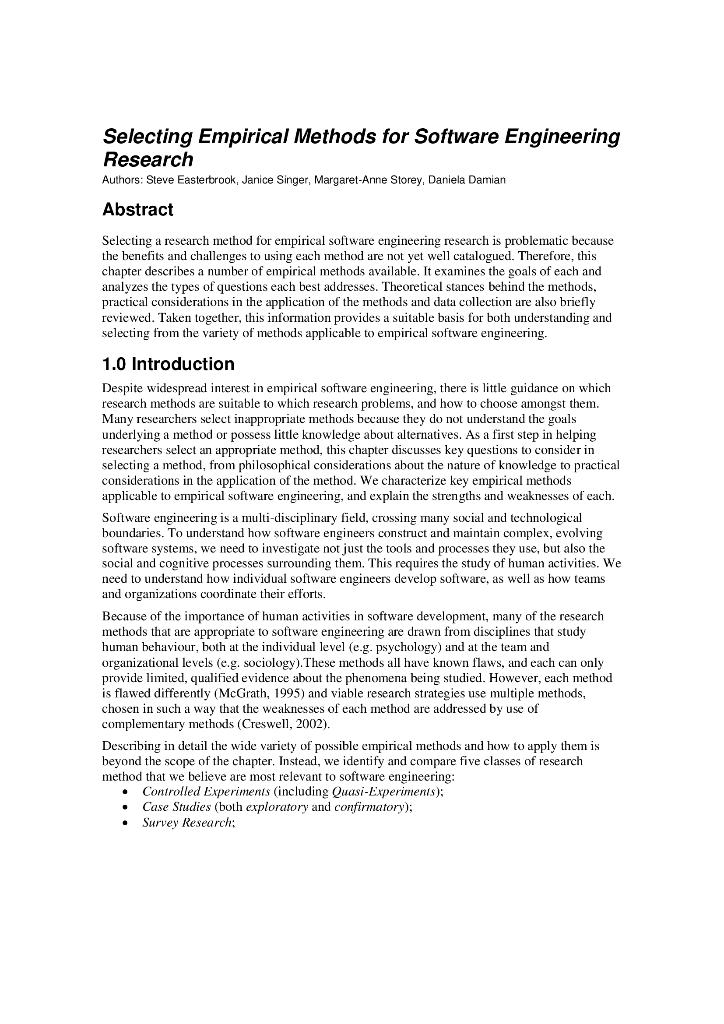
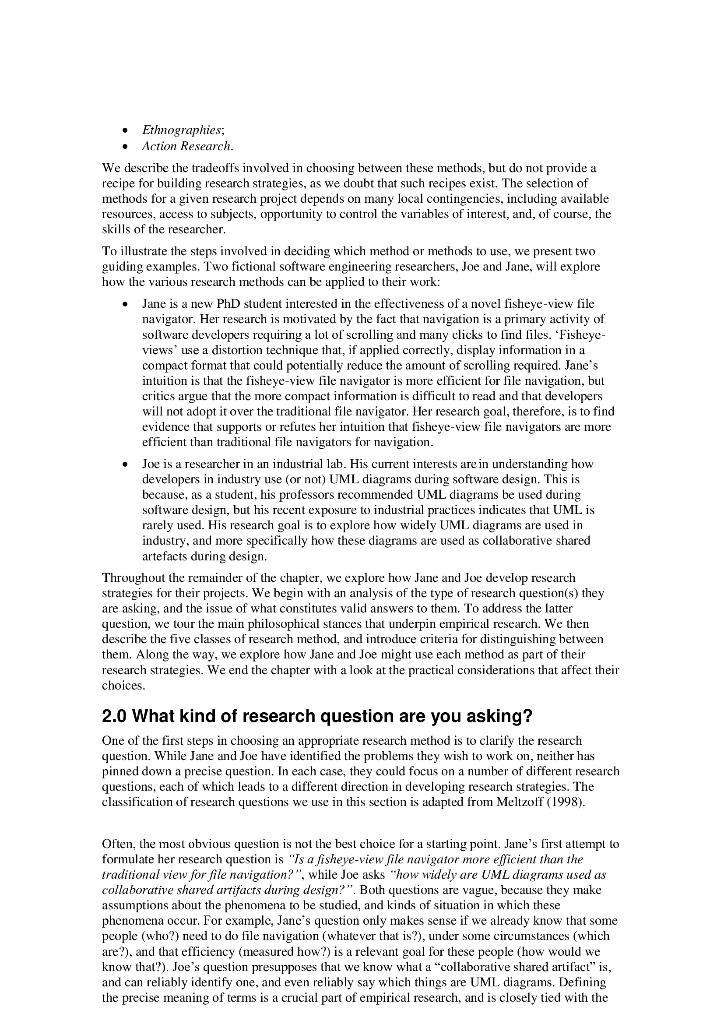
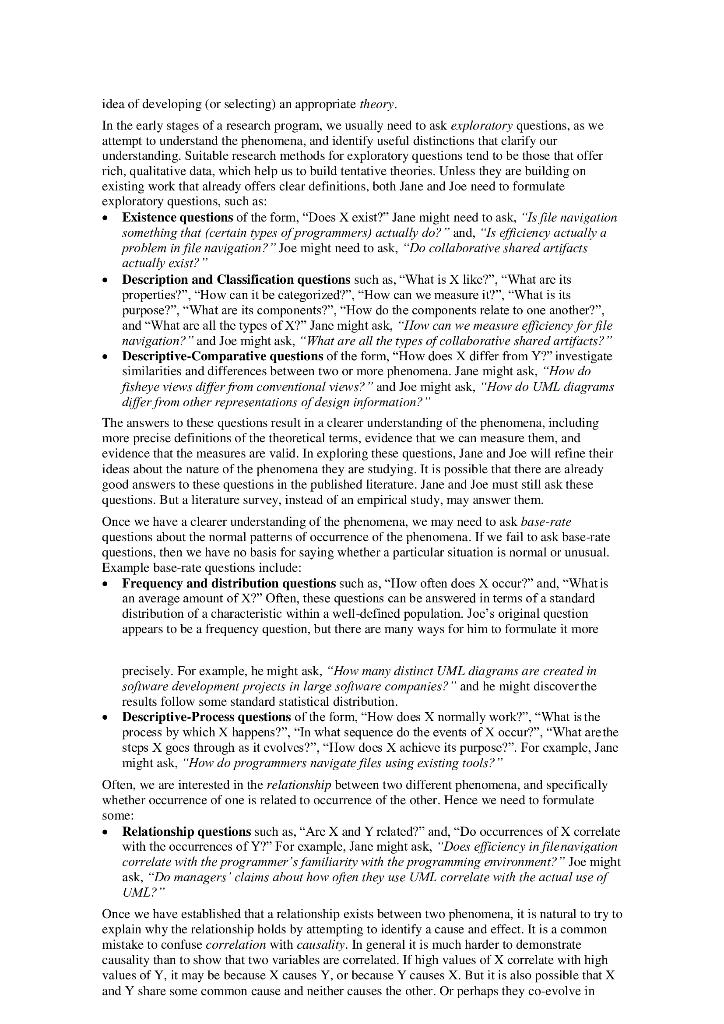
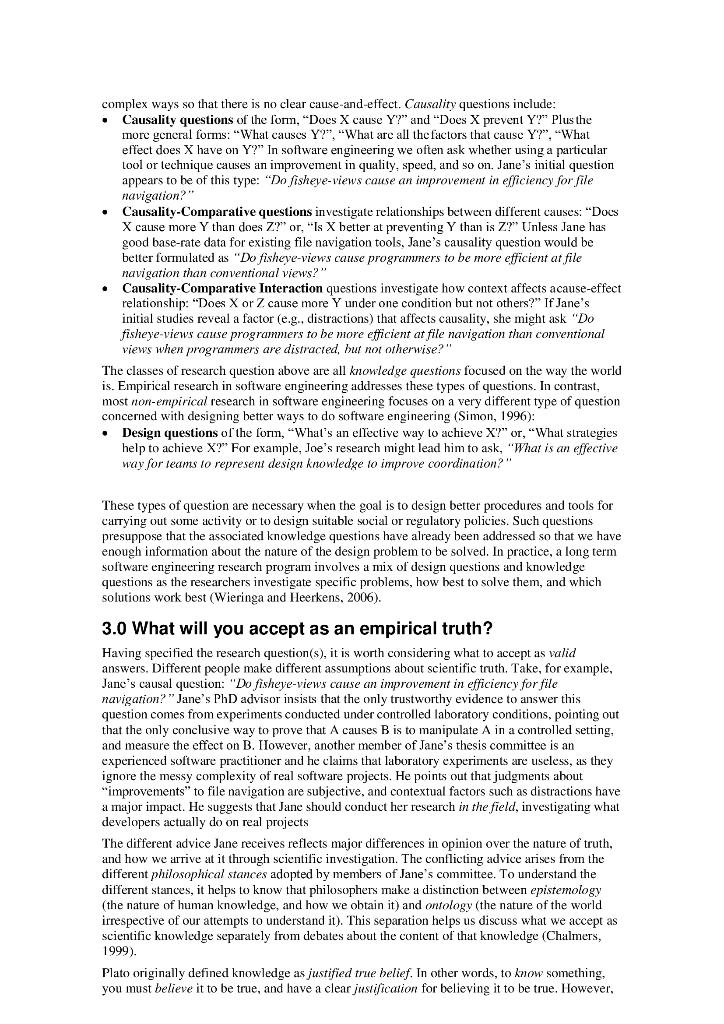
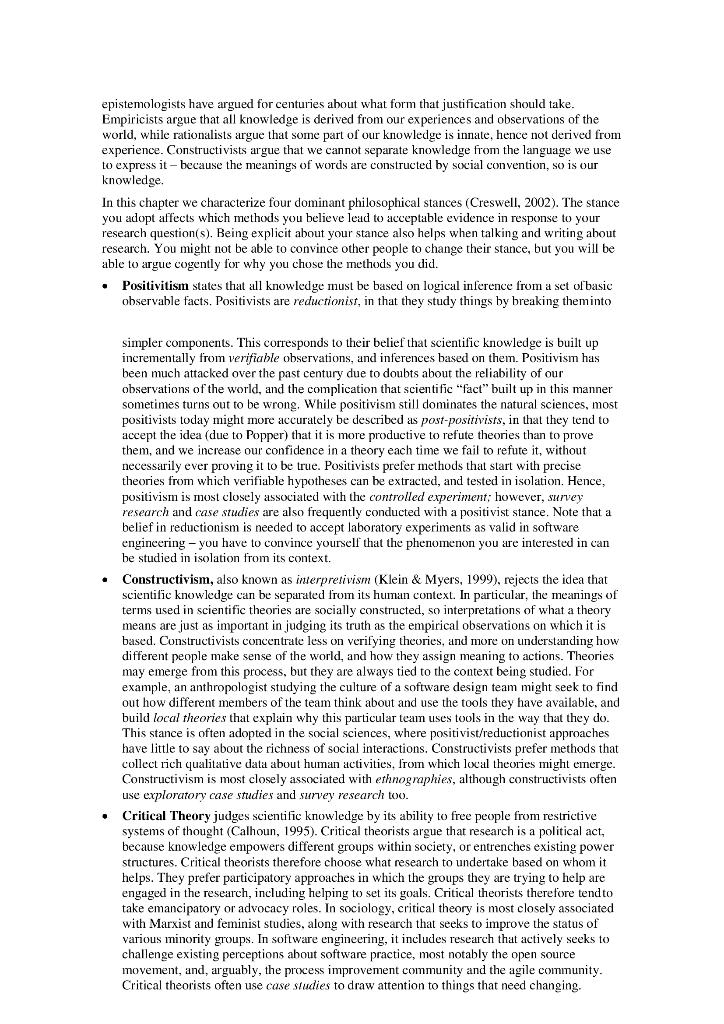
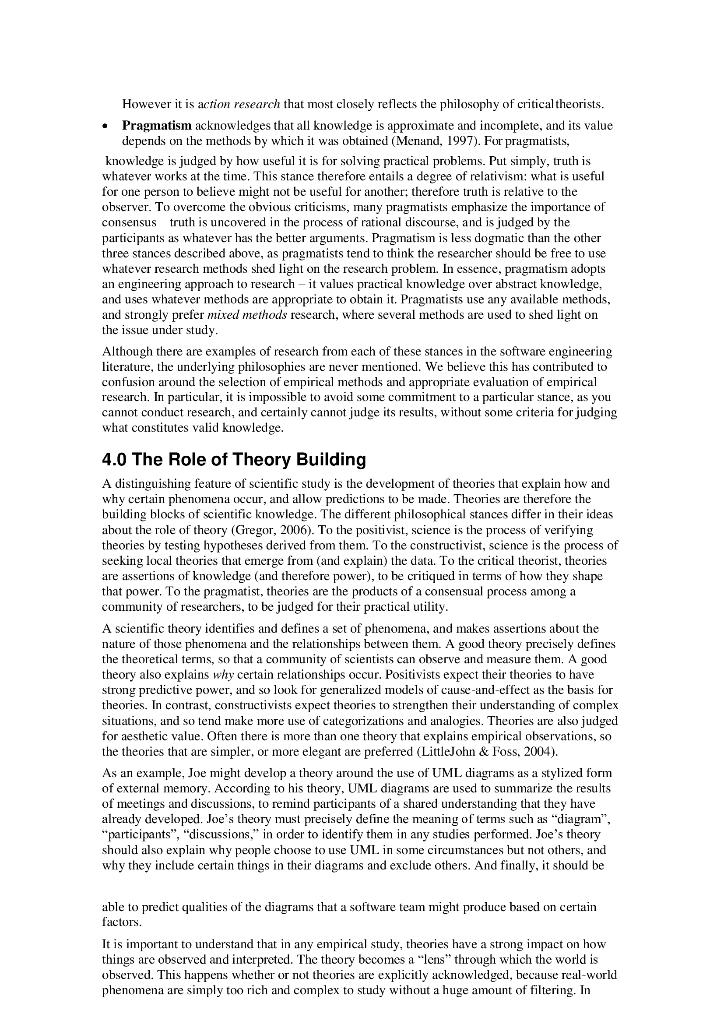
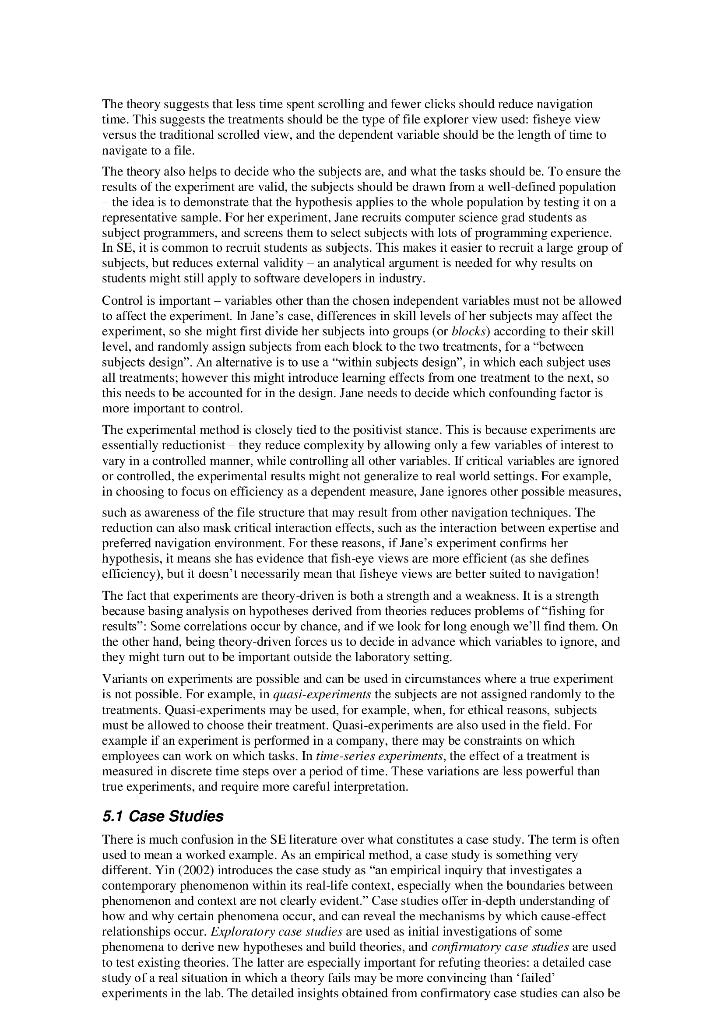
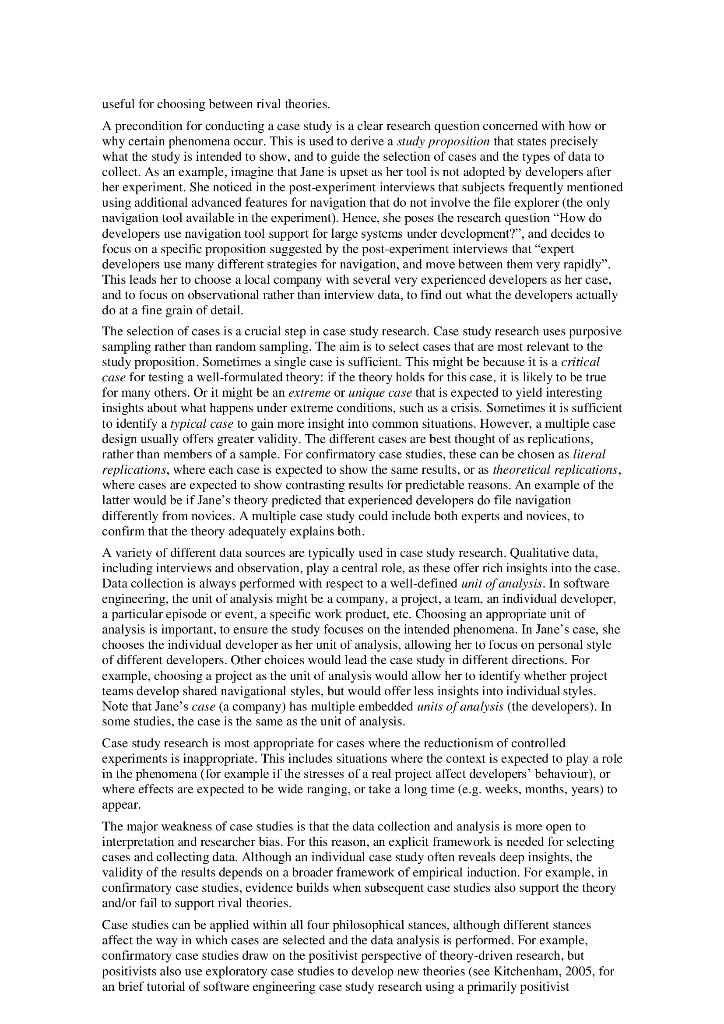
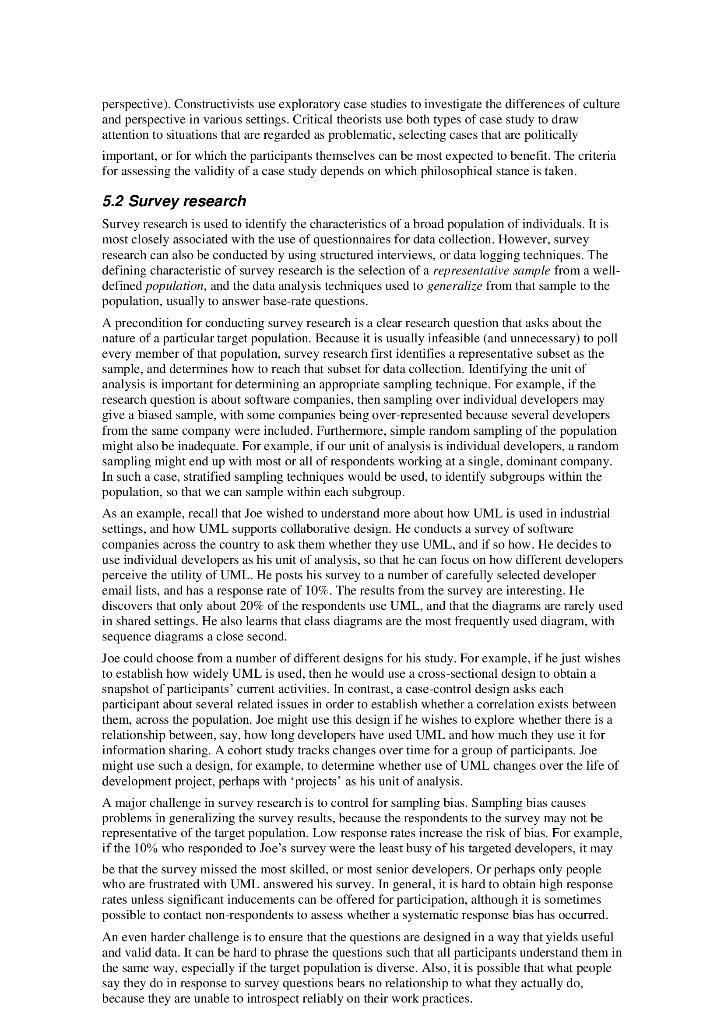
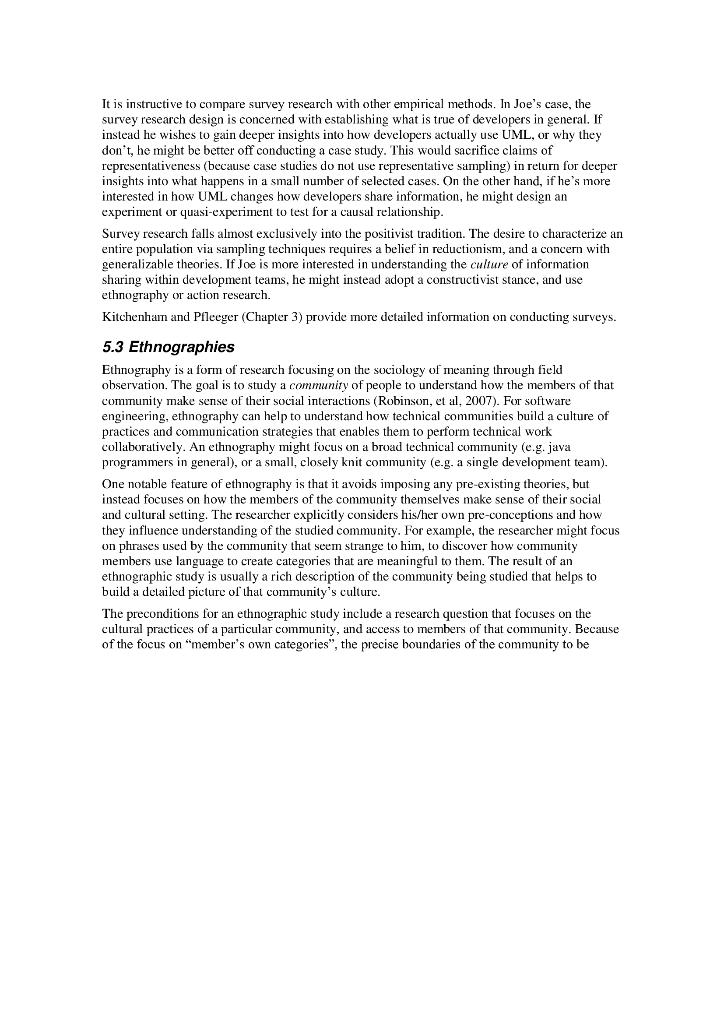
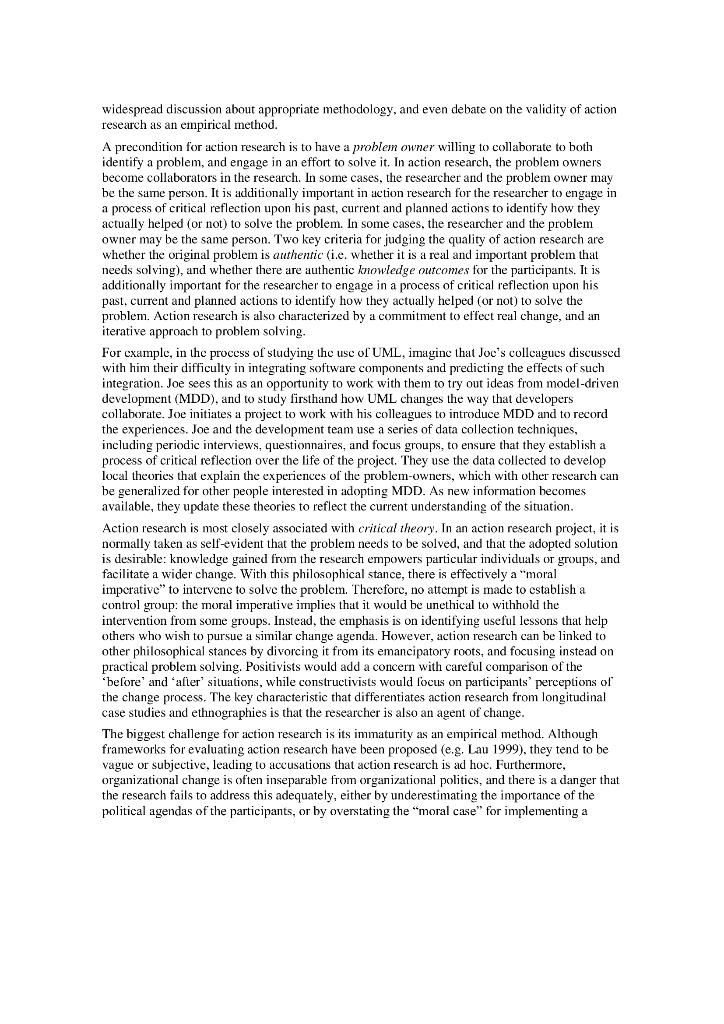
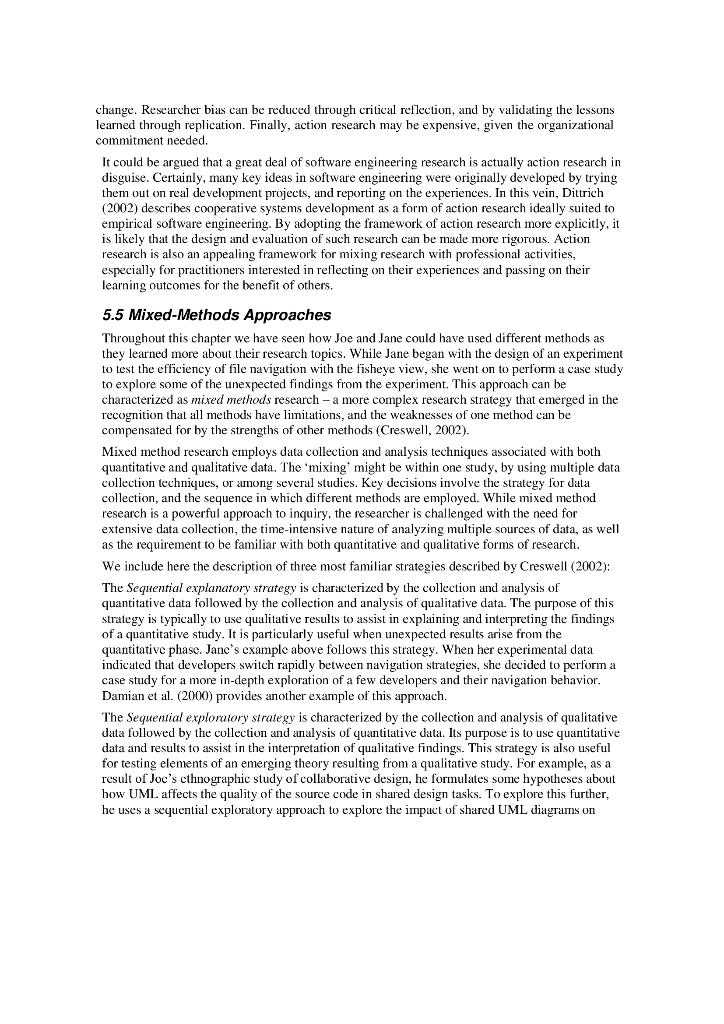
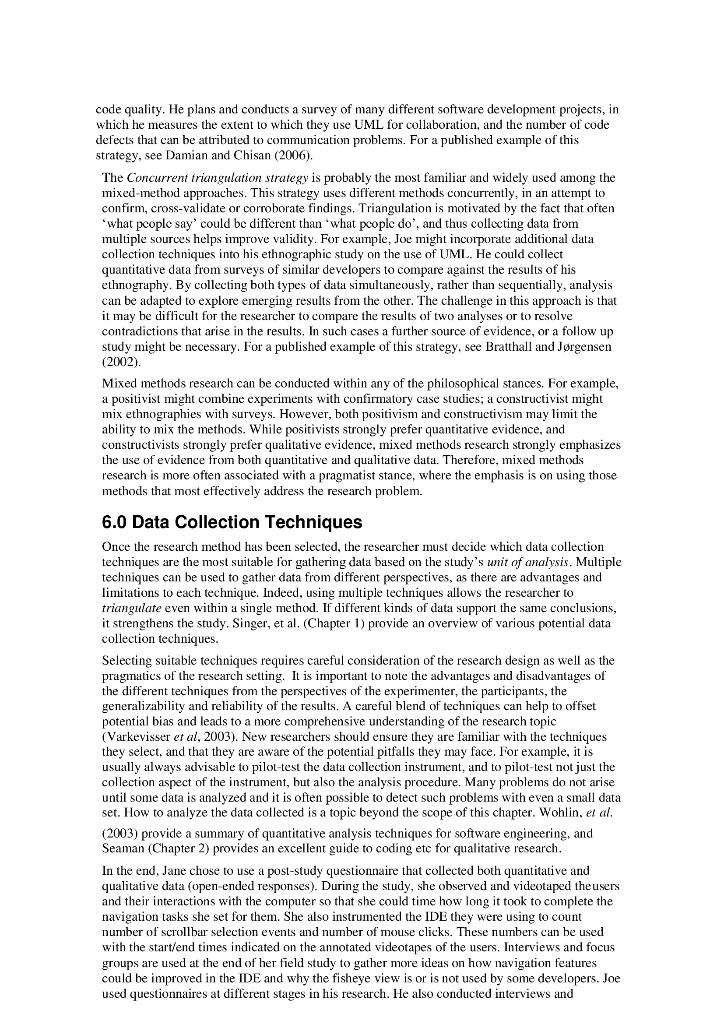
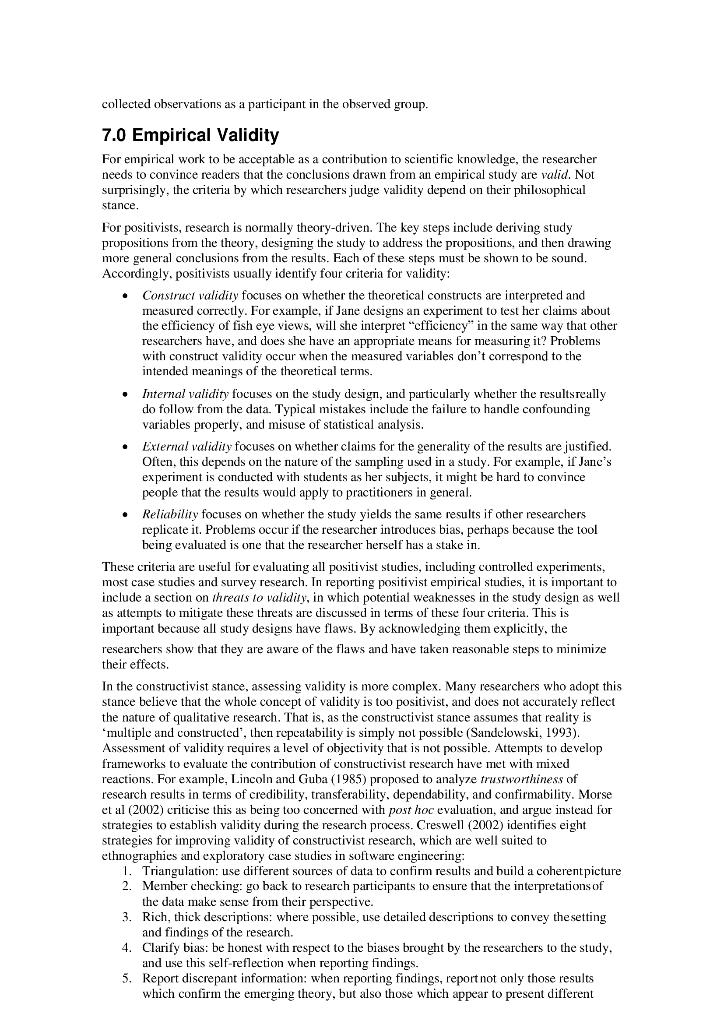
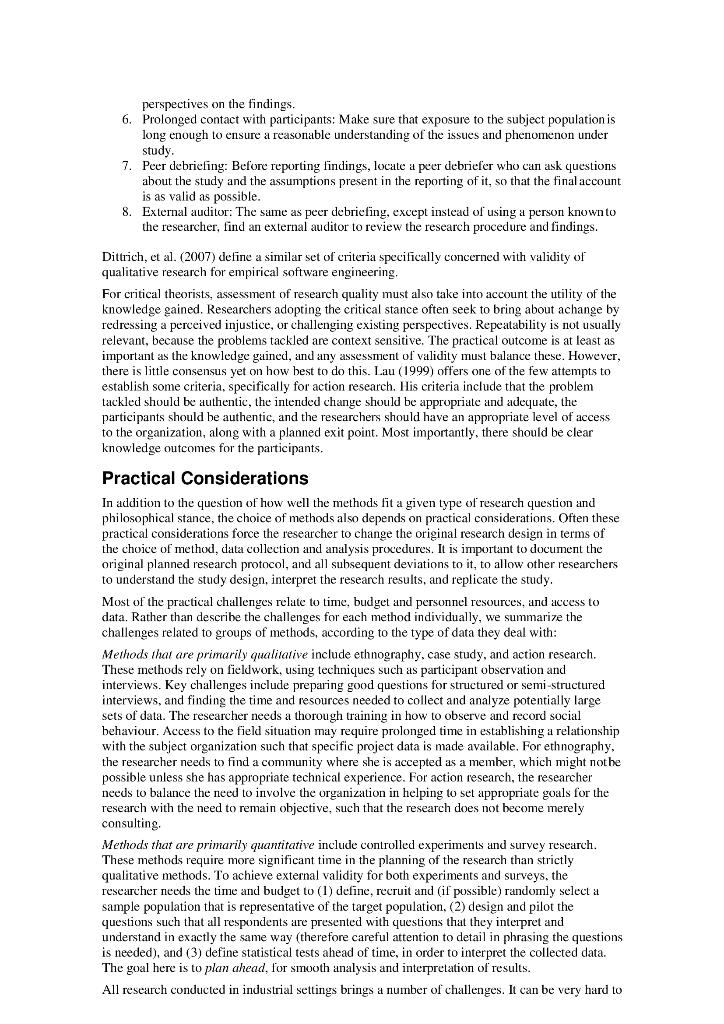

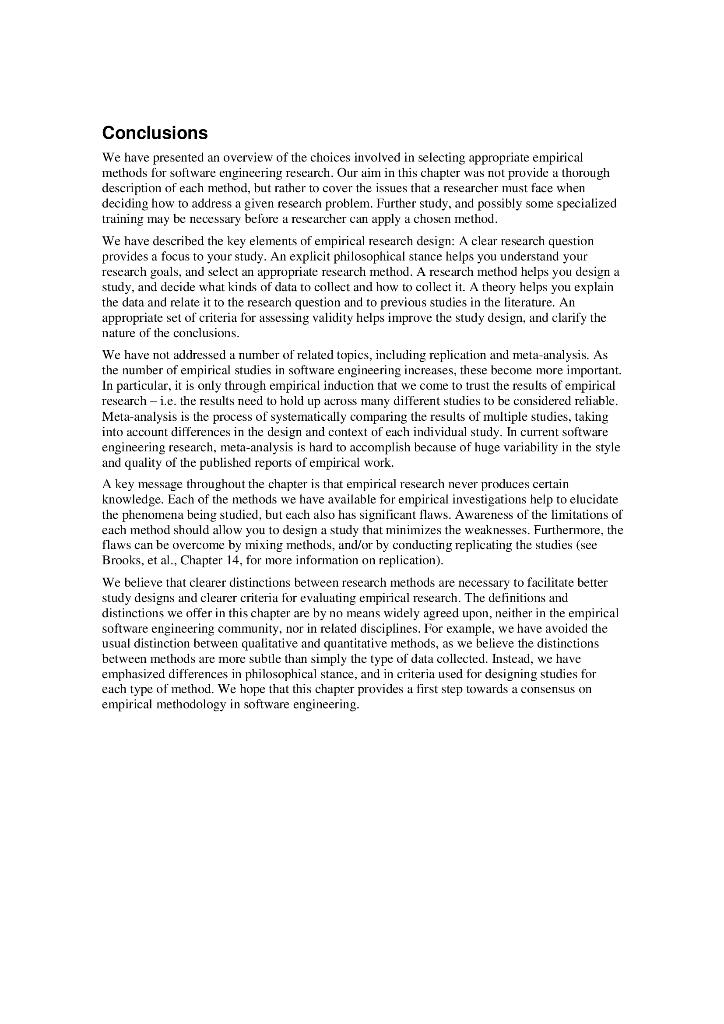
Selecting Empirical Methods for Software Engineering Research Authors: Steve Easterbrook, Janice Singer, Margaret-Anne Storey, Daniela Damian Abstract Selecting a research method for empirical software engineering research is problematic because the benefits and challenges to using each method are not yet well catalogued. Therefore, this chapter describes a number of empirical methods available. It examines the goals of each and analyzes the types of questions each best addresses. Theoretical stances behind the methods, practical considerations in the application of the methods and data collection are also briefly reviewed. Taken together, this information provides a suitable basis for both understanding and selecting from the variety of methods applicable to empirical software engineering. 1.0 Introduction Despite widespread interest in empirical software engineering, there is little guidance on which research methods are suitable to which research problems, and how to choose amongst them. Many researchers select inappropriate methods because they do not understand the goals underlying a method or possess little knowledge about alternatives. As a first step in helping researchers select an appropriate method, this chapter discusses key questions to consider in selecting a method, from philosophical considerations about the nature of knowledge to practical considerations in the application of the method. We characterize key empirical methods applicable to empirical software engineering, and explain the strengths and weaknesses of each. Software engineering is a multi-disciplinary field, crossing many social and technological boundaries. To understand how software engineers construct and maintain complex, evolving software systems, we need to investigate not just the tools and processes they use, but also the social and cognitive processes surrounding them. This requires the study of human activities. We need to understand how individual software engineers develop software, as well as how teams and organizations coordinate their efforts. Because of the importance of human activities in software development, many of the research methods that are appropriate to software engineering are drawn from disciplines that study human behaviour, both at the individual level (e.g. psychology) and at the team and organizational levels (e.g. sociology). These methods all have known flaws, and each can only provide limited, qualified evidence about the phenomena being studied. However, each method is flawed differently (McGrath, 1995) and viable research strategies use multiple methods, chosen in such a way that the weaknesses of each method are addressed by use of complementary methods (Creswell, 2002). Describing in detail the wide variety of possible empirical methods and how to apply them is beyond the scope of the chapter. Instead, we identify and compare five classes of research method that we believe are most relevant to software engineering: Controlled Experiments (including Quasi-Experiments); Case Studies (both exploratory and confirmatory); Survey Research;
Step by Step Solution
There are 3 Steps involved in it
Step: 1
Summary of Selecting Empirical Methods for Software Engineering Research Introduction The article discusses the challenges software engineering resear...
See step-by-step solutions with expert insights and AI powered tools for academic success
Step: 2

Step: 3

Ace Your Homework with AI
Get the answers you need in no time with our AI-driven, step-by-step assistance
Get Started


